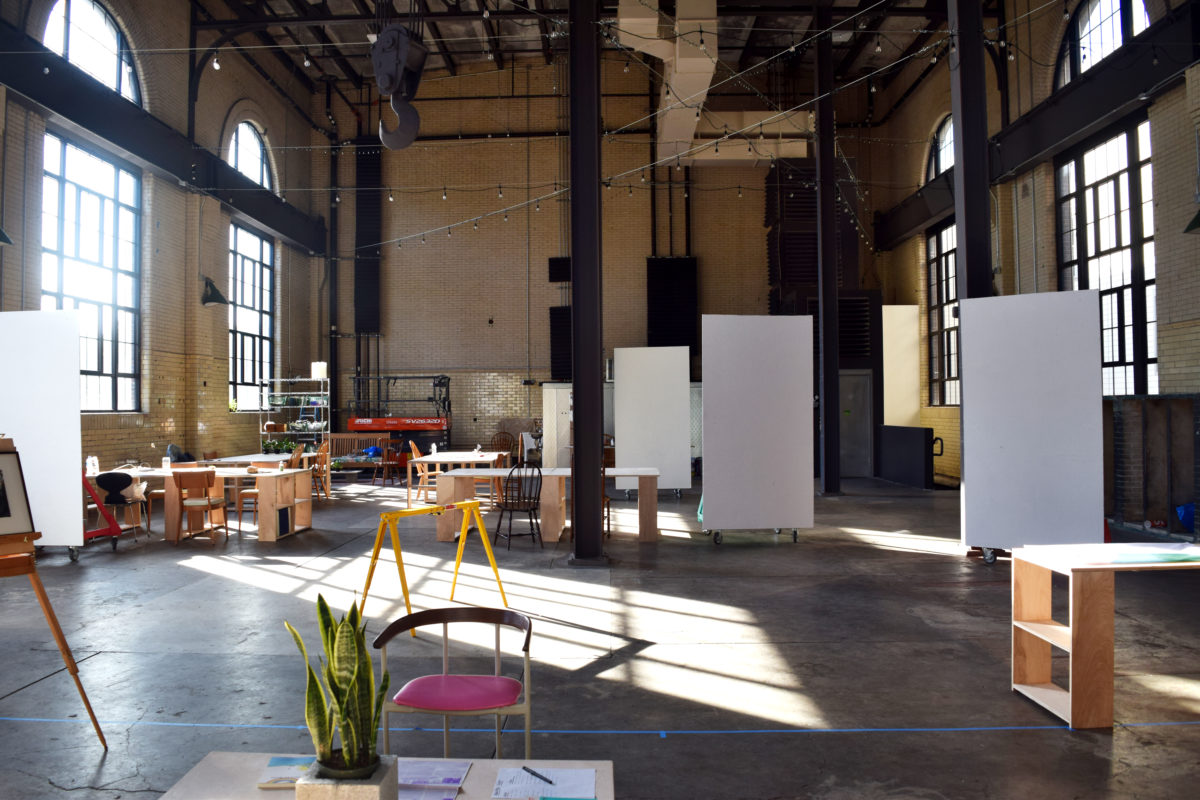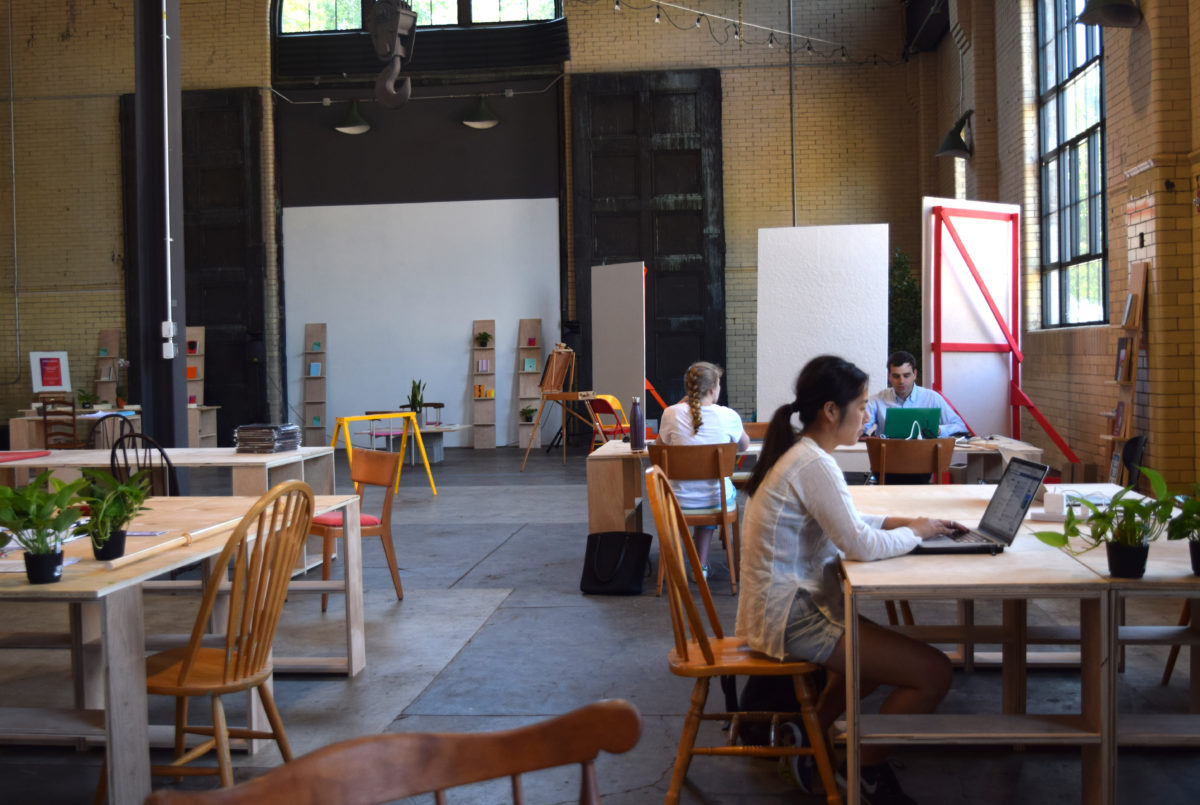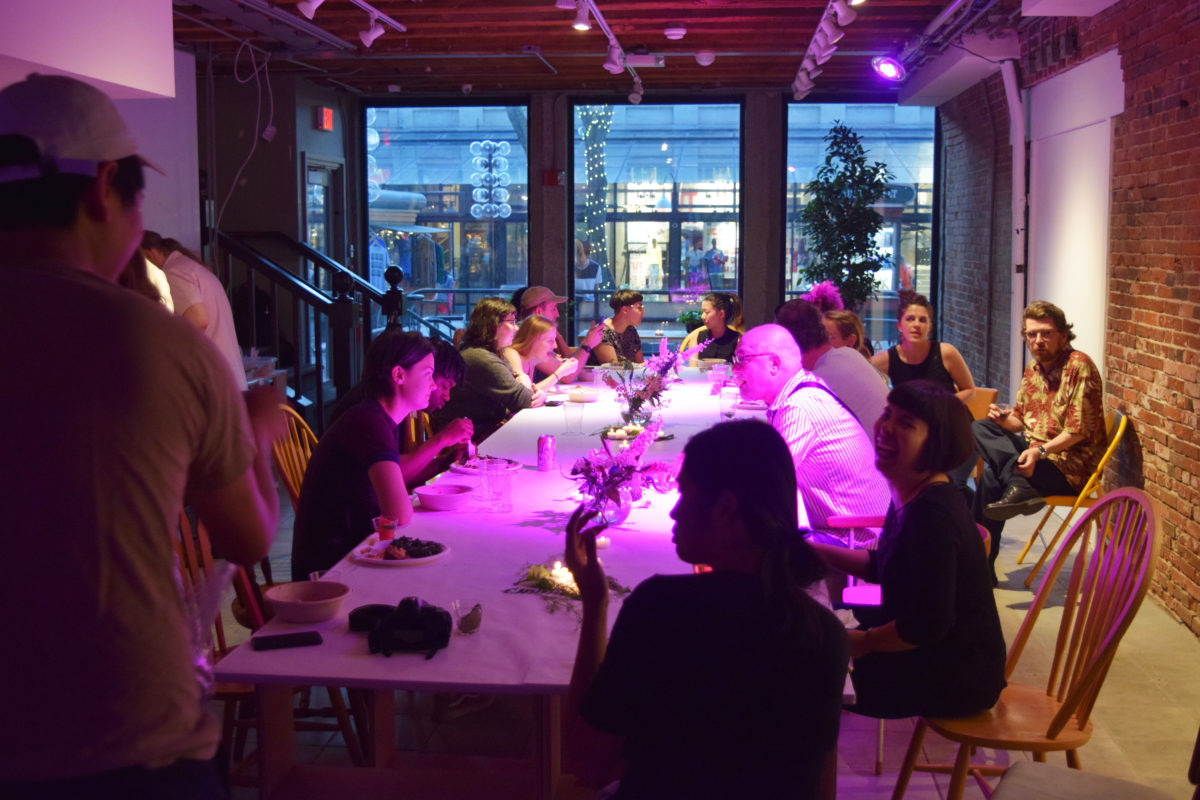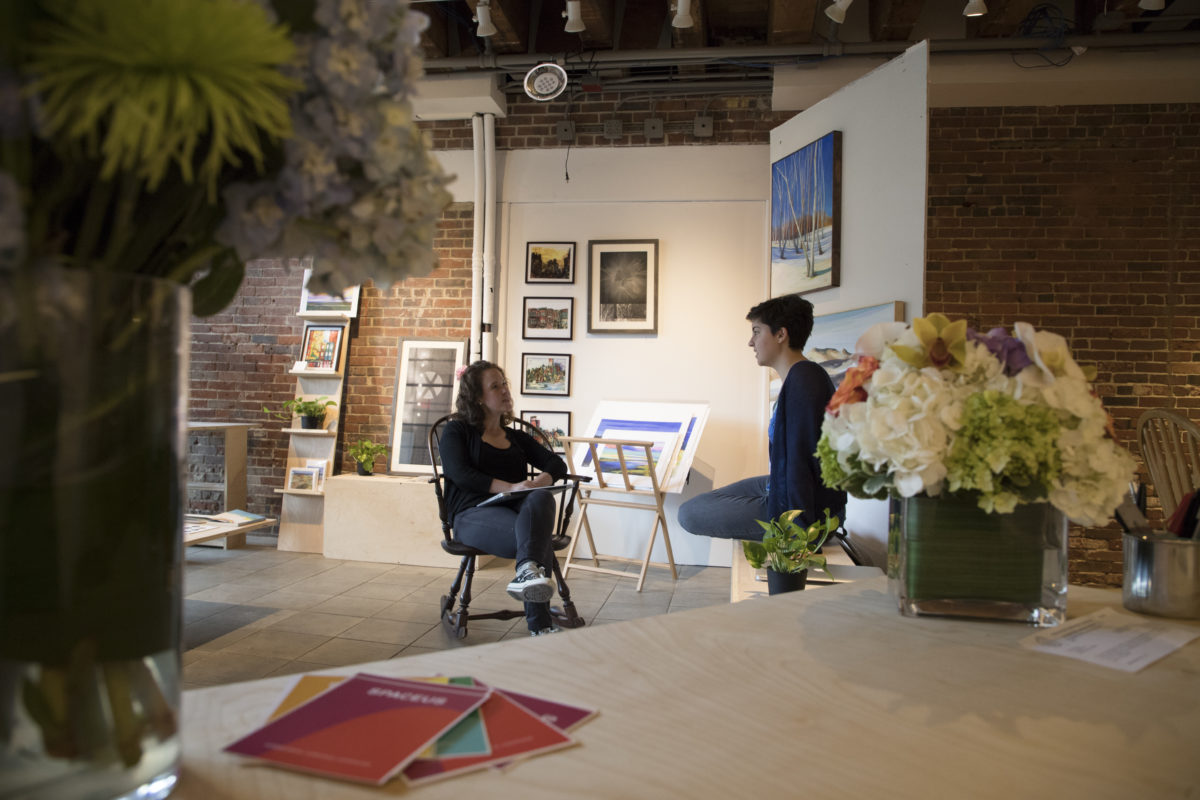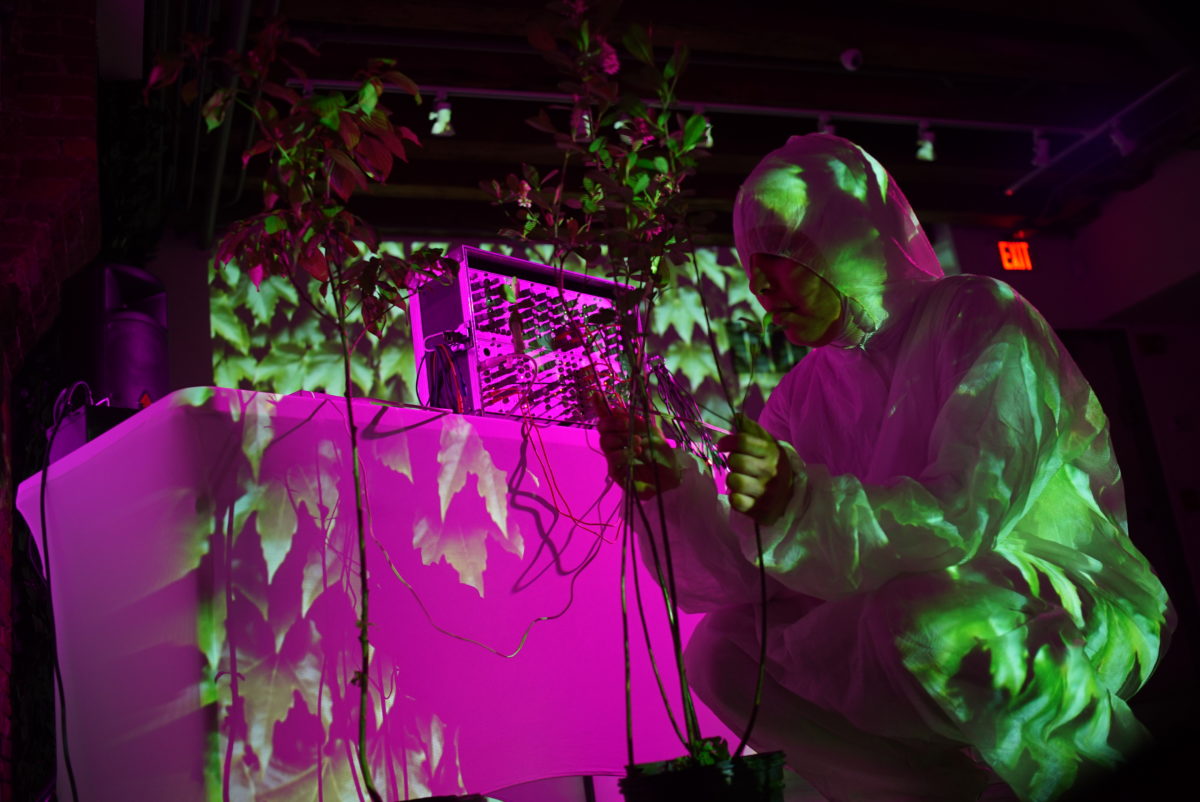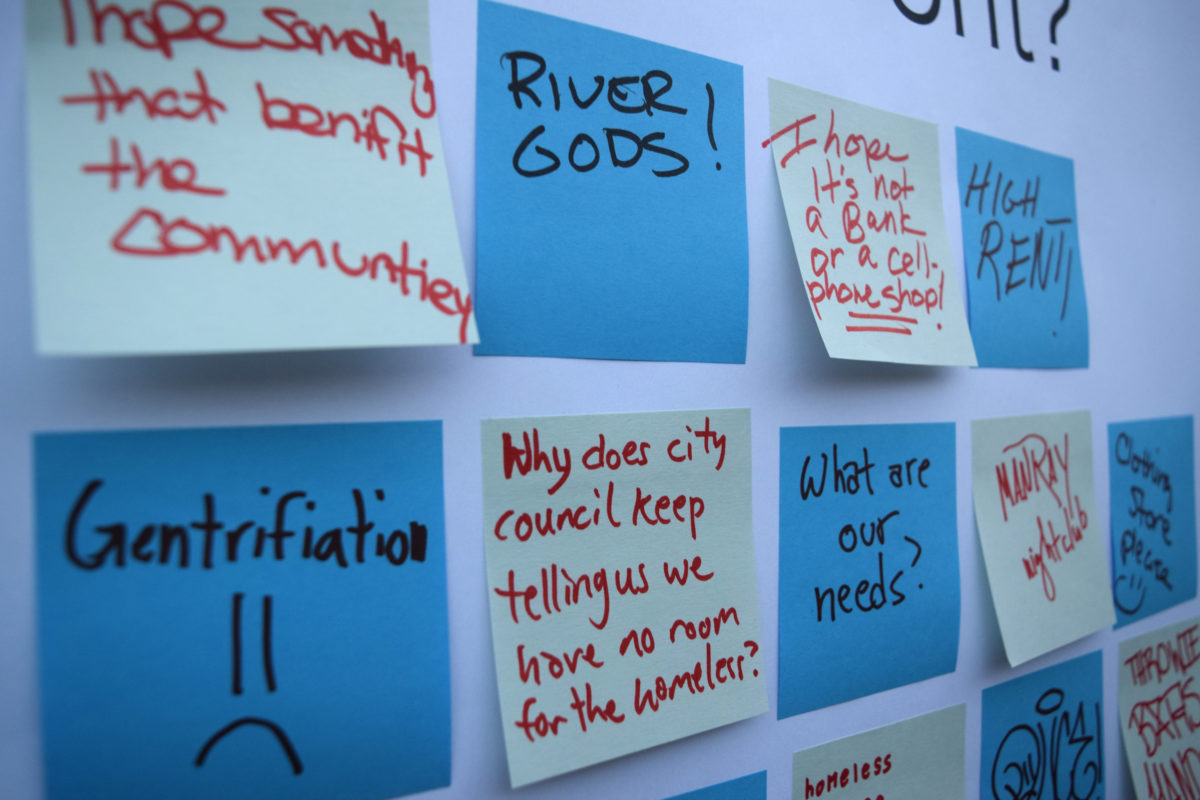“Those things that we do not value, that we do not actively protect, fade away and die,” writes Kevin Baker in “Death of a Once Great City,” an article in Harper’s about New York’s affluence crisis. Baker describes the one-time cultural capital as “boring,” as it devolves into “the world’s largest gated community with a few cupcake shops here and there.”
Without action and safeguards against the ill effects of gentrification, all cities may be doomed to be unremarkable. The cycle is all too familiar—artists move into an area, rent hikes follow, and studio buildings convert to condos (or Whole Foods, or Baby Gap, or something else to make our capitalist hearts flutter), eventually displacing creatives. In April 2015, Mayor Walsh launched Boston Creates, the first cultural planning process for the City of Boston, in an effort to make Boston a municipal arts leader. Grassroots initiatives, like the Space Equals Work campaign, which began in 2013 in Somerville, MA, have also tried to draw attention to the fact that “Strong communities need space for creativity and small businesses.”
Now, two MIT graduate students in the School of Architecture and Planning, Stephanie Lee and Ellen Shakespear, are working on a fresh approach to this old problem—and a few related ones. They formed Spaceus to connect artists to unused commercial properties. “Going down the street and seeing vacant storefronts is upsetting on a number of levels,” says Lee. “Our hope is to give each vacant property an opportunity to be something in the meanwhile, before a bank or a cell phone store inevitably moves in.”
Spaceus formed as a DesignX cohort and placed 2nd in the 2018 Creative Arts Competition. In May, they occupied a two-story retail space in Faneuil Hall Marketplace, where they invited artists to propose pop-up exhibitions and events. This pilot project hosted five events and welcomed over 700 visitors. From July-September 2018, Spaceus transforms the Roslindale Substation into a shared creative workspace and gallery (with an opening celebration July 14, 2018). “Although we are starting with these shorter term leases, the more we do, and the more relationships we form with landlords in the community, there would be an obvious reason to stay longer,” says Shakespear.
Lee and Shakespear have gained the support of Boston City Council President Andrea Campbell and Cambridge Vice Mayor Jan Devereux. Speaking at the Boston City Council hearing on vacant properties, Lee and Shakespear said, “There is energy surrounding the vacancy issue, and we’re excited to be a part of it.”
CAST spoke with Lee and Shakespear about Spaceus, its goals and the current state of artist space in Boston.
A Conversation with Stephanie Lee and Ellen Shakespear of Spaceus
What is DesignX?
DesignX is an accelerator embedded within the School of Architecture and Planning that seeks to accelerate innovation in the built environment, and design more broadly. This is its second year of hosting cohorts of students who are working on startups that do precisely that. There’s quite a diversity of groups in designX this year— from flying drones that collect survey data in new ways, to creating a device that allows you to interface with your dreams.
What’s your vision for Spaceus?
We want to transform vacant storefronts into artist studios. Once these spaces are up and running, we see them also functioning as a way for the community and artists to come together outside of the traditional spaces of museums or galleries. It will be an inviting space that encourages people to wander in and see the production of art in a way that is perhaps more approachable than it is in other institutions that exist.
Also in regards to the flexibility of the space, we’re interested in having membership models that respond to the needs of artists when it comes to the size of space that they need, and the hours that they need to work. We realize that it can be cost prohibitive to pay for 24/7 access to a studio each month, when you’re managing a job on the side and wouldn’t realistically use the space except for nights and weekends.
We’re hoping to design a space that allows artists to only pay for the time that they actually needed to use it and that allows us to be flexible in terms of space and use.
Have you figured out why the vacancy problem persists in places like Boston?
Vacancy is a complex issue, and there are a few reasons why the problem persists even in places that are economically vibrant. First, there are a lot of global companies that have a presence and can afford a space, and can afford to pay a lot more than what local businesses can afford to pay. There’s also the fact that there are tax incentives to keeping spaces empty. It’s also a huge nuisance and expense for people to write short term leases.
One thing we’re excited about is negotiating these spaces for artists who probably don’t want to be dealing with the headache of finding space and stringing these things together. Being able to do that for people is super exciting.
If we can represent a host of artists, but be the face that landlords, over time, come to know and trust, that eliminates the nuisance aspect.
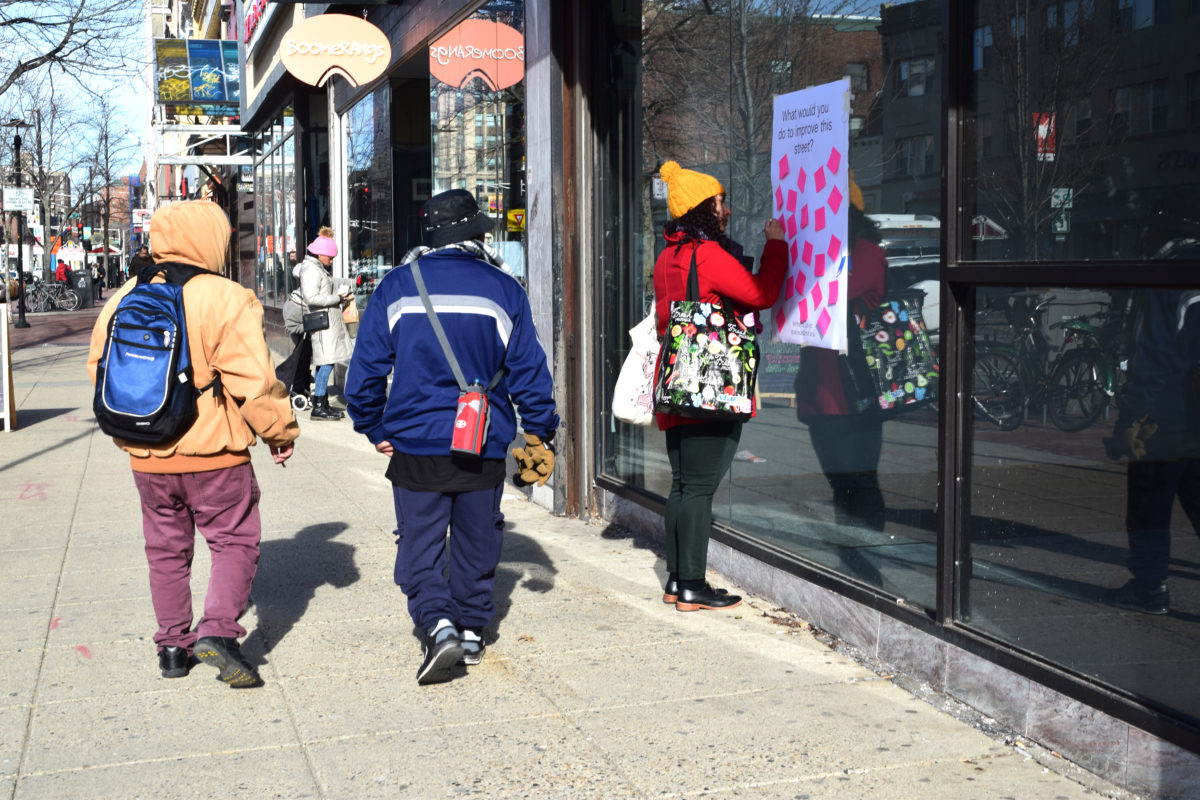
What’s your research process like? How are you putting these parts together?
We’re talking to just about anybody who will talk to us. So that includes massive outreach to artists. We’re talking to the city who we see as a huge partner. So that includes arts commissions, planners, the mayor’s office.
One interesting research undertaking that we did was a postering campaign in Central Square. We put up some large posters, post-its, and sharpies on windows of vacant storefronts and invited people to respond to a series of questions: What do you wish was inside of this store? What do you think of when you see a vacant storefront? What do you wish was on the street? How would you improve this street?
They’re questions that we’re always asking ourselves. Sometimes we’re not sure if we’re thinking about it because all we do is think about cities and space. And so to see that other people were thinking about it, and had really thoughtful answers, was really moving for us. It felt good to have this conversation.
When you have a space populated with artists, is the idea for these artists to be engaged in collaborative work? Or, do they have independent studios?
Both. We’re seeing more and more artists want meaningful community engagement. You see it reflected in museum programming, with expansions of education programming designed to invite people in.
So we think our spaces are ripe for that sort of communication. People feel less intimidated by going into a space that’s just down the street, rather than paying admission to go into this large building with art you’re supposed to like.
While our primary users seem to want this kind of interaction, the spaces also allow for people to work individually and can accommodate a lot of different working styles. We’re really excited about people who want to dream of what this space can do.
We see ourselves not only as a working space, but also as a supportive infrastructure for artists. We want to provide professional and legal advice through talks and workshops.
One thing we found in our research—by conducting interviews with artists—is that there seems to be a great exodus of artists from Boston. Without active galleries and workspace, artists feel compelled to move to other cities that have more supportive networks that encourage the arts to flourish. This has major repercussions on the city. Without artists, Boston will inevitably lose its creative character and be more generic. So one thing we’re thinking about is, how do we create a supportive infrastructure, essentially, so that people don’t feel that they need to leave to pursue their practice.
What is one of the biggest lessons learned in the process?
In the process of moving from space to space, we’ve been encouraged by the real excitement our members have for exploring and connecting with neighborhoods and communities they may have never experienced before, even as a local. We’ve loved seeing Cambridge residents make their first trip out to Roslindale, or locals experiencing Faneuil Hall for the first time since their relatives visited five years ago. Spaceus is about breaking down silos and cross-pollinating, and it’s exciting to see this start to take shape.

